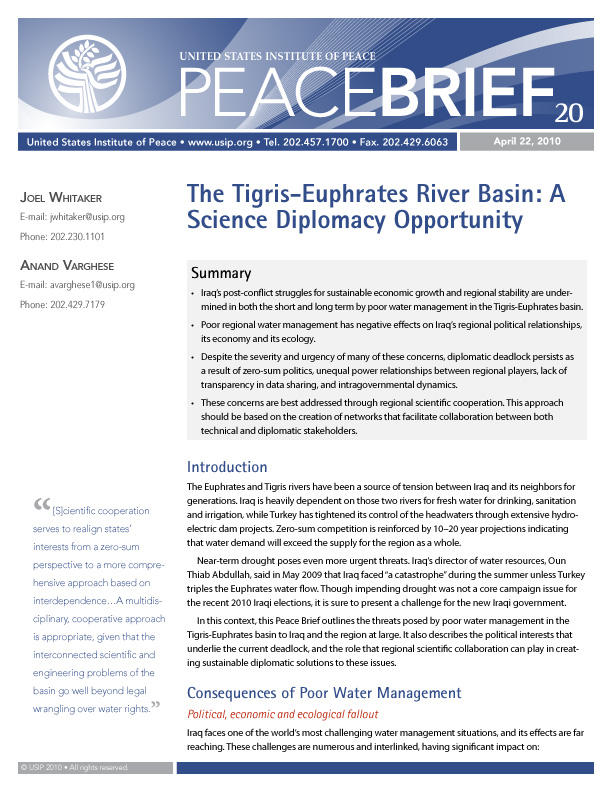Iraq’s post-conflict struggles for sustainable economic growth and regional stability are undermined in both the short and long term by poor water management in the Tigris-Euphrates basin. Poor regional water management has negative effects on Iraq’s regional political relationships, its economy and its ecology.

Summary
- Iraq’s post-conflict struggles for sustainable economic growth and regional stability are undermined in both the short and long term by poor water management in the Tigris-Euphrates basin.
- Poor regional water management has negative effects on Iraq’s regional political relationships, its economy and its ecology.
- Despite the severity and urgency of many of these concerns, diplomatic deadlock persists as a result of zero-sum politics, unequal power relationships between regional players, lack of transparency in data sharing, and intragovernmental dynamics.
- These concerns are best addressed through regional scientific cooperation. This approach should be based on the creation of networks that facilitate collaboration between both technical and diplomatic stakeholders.
About This Brief
This Peace Brief was written by Joel Whitaker, senior adviser to the Center of Innovation for Science, Technology, and Peacebuilding at the United States Institute of Peace, and Anand Varghese, program assistant to the Center of Innovation for Science, Technology, and Peacebuilding.